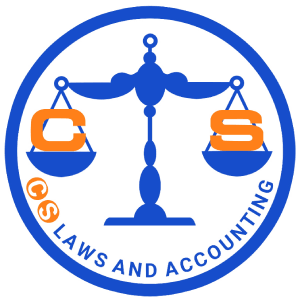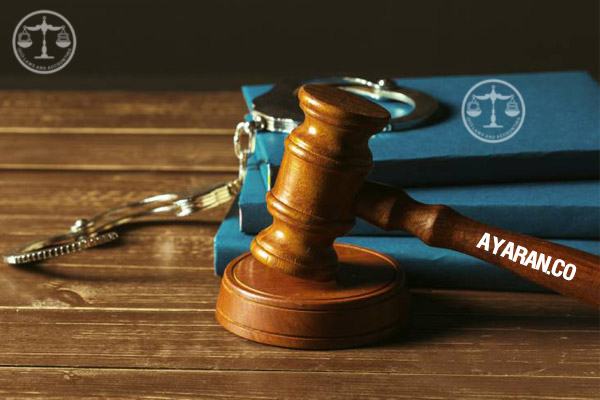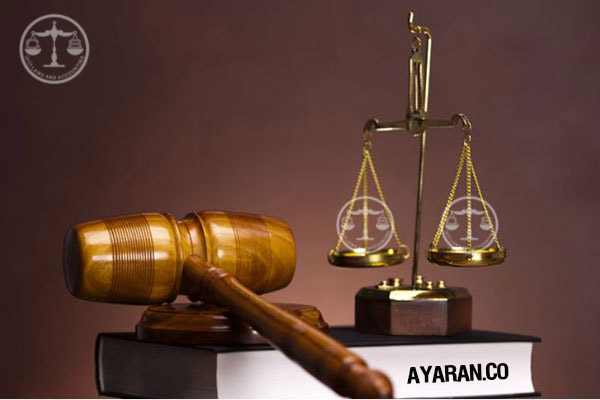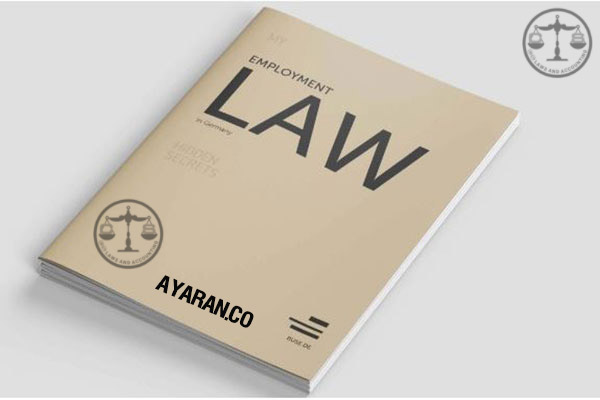

About

Legal

Power of Attorney
A Power of Attorney (POA) is an instrument which grants authority for one person to act on someone else’s behalf. The person giving the authority is called the Principal or Grantor, while that who is given the authority is called the Agent or Attorney-in-Fact.

Notary Service
In most countries, a Notary Public is known as an official who is licensed by the State to perform functions such as the authentication of signatures or documents, and the witnessing of affidavits or statements of persons under oath. Notarization of a document is important as the act of notarization itself creates a guarantee on the authenticity of the document, or to the act of the signatories to the instrument.

Private Investigation
Private investigation helps ordinary people, business organizations, government institutions, and industrial leaders reduce the risks they face every day and give them the means to make a more informed decision in the future.

Litigation Services
Most laws are codified and, unlike common law jurisdictions, the courts are not bound by previous decisions. Stare decisis or compliance with former decisions of the Supreme Court is not mandatory, but in practice, Supreme Court decisions generally have a persuasive effect in the)
Services

– Divorce: Divorce in the dissolution of marriage or the bonds of matrimony which usually entails the canceling of the legal responsibilities and duties of the married couple ruled under the Civil and Commercial Code.
– Torts: Tort law is a body of law that addresses and provides remedies for civil wrongs not arising out of contractual obligations
– Child Custody: child custody issue always arises when spouses having children are divorcing or when spouses decide to live separately. Additionally, the child custody is often an issue for an unmarried couple who has children born out of marriage.
– Medical Malpractice: Law provides that claims for medical malpractice may be filed in courts. Such claims have their basis in law as liability for wrongful acts.
– Debt Collection: A loan of money contract is known as a “loan of consumption”, a contract whereby the lender transfers to the borrower the ownership of a certain quantity of property which is “consumed” by the borrower. The borrower, in return, agrees to return property “of the same kind, quality and quantity.” Note, such a contract only becomes complete upon delivery of the property.
– Mediation: Mediation, like Arbitration, can be conducted in both in court and out of court settings.
– Personal Injury Claims: Law provides that claims for compensation as a result of personal injury may be filed in the courts.
– Anti-Money Laundering: In the light of the proliferation of illegal activities involving large sums of money, Courts legislative body has implemented a comprehensive anti-money laundering law.
– Fraud: Fraud cases come under both civil and criminal complaints. However, when it comes to criminal cases, the complainants are required to provide a higher degree of proof to make their case stronger as compared to the proof that they might have to present in a civil suit. Fraud is used as an umbrella term and includes various sub-categories under the criminal system of Courts.
– Drugs: Provisions for drug-related offences are contained in a raft of laws variously defined in the Measure for Suppressing Narcotic Offenders as being ‘laws governing narcotics and laws governing active materials which have an active effect on the mind and the nerves.
– Extradition Requests: The Extradition now applies to all extradition proceedings. It must be noted that the Act is subject to the provisions of any treaties concerning extradition between the governments or any other international agency.


– Arbitration: Resort to court action is a common approach to dispute resolution in both the private and commercial sectors. With the influx of joint public and private investments, new businesses, and private property purchases, seen an inevitable rise in the volume of litigation. The additional strain on an already overburdened judicial system has meant that disputes can often take years to reach a conclusion.
– Labor Court: The labor sector is a dynamic segment in the economic structure. As businesses flourished, the workforce likewise increased in figures. Inevitable, the courts saw an escalation in the number of labor disputes.
– Trade Disputes: Foreigners, both natural or legal entities (juristic persons) may enter into contracts and establish contractual relationships with other nationals. The place where the obligations of the contract are to be discharged may be the country of residence of any such foreigner, and the employees of the parties carrying out the obligations may be mainly non-native who do not reside in country.
– Intellectual Property: Intellectual property rights are protected by the granting of patents and the registration of trademarks (including service marks, collective marks and certification marks). In addition, the law protects certain types of work as defined in the Copyright Act.

Article

Court of Justice of the European Union (CJEU)
What does the CJEU do?
The CJEU gives rulings on cases brought before it. The most common types of case are:
- interpreting the law (preliminary rulings) – national courts of EU countries are required to ensure EU law is properly applied, but courts in different countries might interpret it differently. If a national court is in doubt about the interpretation or validity of an EU law, it can ask the Court for clarification. The same mechanism can be used to determine whether a national law or practice is compatible with EU law.
- enforcing the law (infringement proceedings) – this type of case is taken against a national government for failing to comply with EU law. Can be started by the European Commission or another EU country. If the country is found to be at fault, it must put things right at once, or risk a second case being brought, which may result in a fine.
- annulling EU legal acts (actions for annulment) – if an EU act is believed to violate EU treaties or fundamental rights, the Court can be asked to annul it – by an EU government, the Council of the EU, the European Commission or (in some cases) the European Parliament.
Private individuals can also ask the Court to annul an EU act that directly concerns them. - ensuring the EU takes action (actions for failure to act) – the Parliament, Council and Commission must make certain decisions under certain circumstances. If they don’t, EU governments, other EU institutions or (under certain conditions) individuals or companies can complain to the Court.
- sanctioning EU institutions (actions for damages) – any person or company who has had their interests harmed as a result of the action or inaction of the EU or its staff can take action against them through the Court.
Composition
The CJEU is divided into 2 courts:
- Court of Justice – deals with requests for preliminary rulings from national courts, certain actions for annulment and appeals.
- General Court – rules on actions for annulment brought by individuals, companies and, in some cases, EU governments. In practice, this means that this court deals mainly with competition law, State aid, trade, agriculture, trade marks.
Each judge and advocate general is appointed for a renewable 6-year term, jointly by national governments. In each Court, the judges select a President who serves a renewable term of 3 years.
How does the CJEU work?
In the Court of Justice, each case is assigned 1 judge (the “judge-rapporteur”) and 1 advocate general. Cases are processed in 2 stages:
- Written stage
- The parties give written statements to the Court – and observations can also be submitted by national authorities, EU institutions and sometimes private individuals.
- All of this is summarised by the judge-rapporteur and then discussed at the Court’s general meeting, which decides:
- How many judges will deal with the case: 3, 5 or 15 judges (the whole Court), depending on the importance and complexity of the case. Most cases are dealt with by 5 judges, and it is very rare for the whole Court to hear the case.
- Whether a hearing (oral stage) needs to be held and whether an official opinion from the advocate general is necessary.
- Oral stage – a public hearing
- Lawyers from both sides can put their case to the judges and advocate general, who can question them.
- If the Court has decided an Opinion of the advocate general is necessary, this is given some weeks after the hearing.
- The judges then deliberate and give their verdict.
- General Court procedure is similar, except that most cases are heard by 3 judges and there are no advocates general.

Labor & Employment Law in Germany
Germany has relatively strict employment and labor laws: Many provisions have a special emphasis on protecting employees. However, these laws also provide clear guidance for employers on individual employment contracts, employee benefits and entitlements, and rules around termination and dismissal.
This article can act as a simple guide for employers to navigate German labor and employment laws when expanding in any capacity into Germany.
It is critical to understand German employment law if you plan to expand operations to Germany. Equally important is having a grasp of all other laws related to your business, such as tax laws or data protection laws.
See the video below, or read our Guide to Doing Business in Germany, for a quick overview of general business laws and regulations
What are the labor laws in Germany?
German labor laws are not consolidated within any one piece of legislation. Instead, German employment law can be found across many types of documents. This includes the German Civil Code, various federal legislation, case law exemplars, and collective bargaining agreements, work council agreements, and employment contracts.
Taken in collaboration, German law is organized to target both the collective organization of all employment matters and more specifically, the relationship between an employer and employee. For international companies looking to hire employees in Germany, it’s important to know where to find individual labor laws. Here are some documents where you can find these laws.
German Civil Code “Buergerliches Gesetzbuch”
The German Civil Code (“Buergerliches Gesetzbuch” or “BGB”) is regarded as one of the most influential pieces of legislation in the world. The code is where German civil laws are found and many of its provisions, which have been sworn into law over the last 120 years are still valid. Regarding how the Code relates to employment law, the civil code encompasses basic regulations for employment contracts.
Part-time and Fixed-term Work Act “Teilzeit- und Befristungsgesetz”
Provisions for working hours and the protection of employees undertaking part-time or fixed-term contracts are found within the Part-time and Fixed-term Work Act (“Teilzeit- und Befristungsgesetz”). One of the most important provisions found within this act is the right for workers who are employed with a company with more than 15 permanent workers to be able to reduce their working hours. This could be from full-time to part-time and can be transferable to part-time employees to transfer to full-time status as well. This act also prevents discrimination in the treatment of part-time or fixed-term employees in comparison to full-time employees.
Employee Leasing Act “Arbeitnehmerueberlassungsgesetz“
For German companies or foreign entities looking to hire temporary contractors in Germany, the provisions to do this legally are found within the Employee Leasing Act (“Arbeitnehmerueberlassungsgesetz”). The most important thing to know about labor leasing in Germany is that a company or individual that leases out German employees as contractors must hold an Arbeitnehmerüberlassung (AUG) license. Most of the time, foreign entities that are seeking contractors or looking to send employees for a temporary contract in Germany will go through a third-party entity employee leasing company that holds an AUG license to hire and manage temporary employees.
Federal Act on Holidays “Bundesurlaubsgesetz”
Employees in Germany are entitled to a certain number of minimum holidays each year which is stipulated under provisions listed in the Federal Act on Holidays (“Bundesurlaubsgesetz”).
To get the profile this company, please click on the download button.
Copyright © 2022 All Rights Reserved for Ayaran. | Design by : Ayaran World Trading Group
